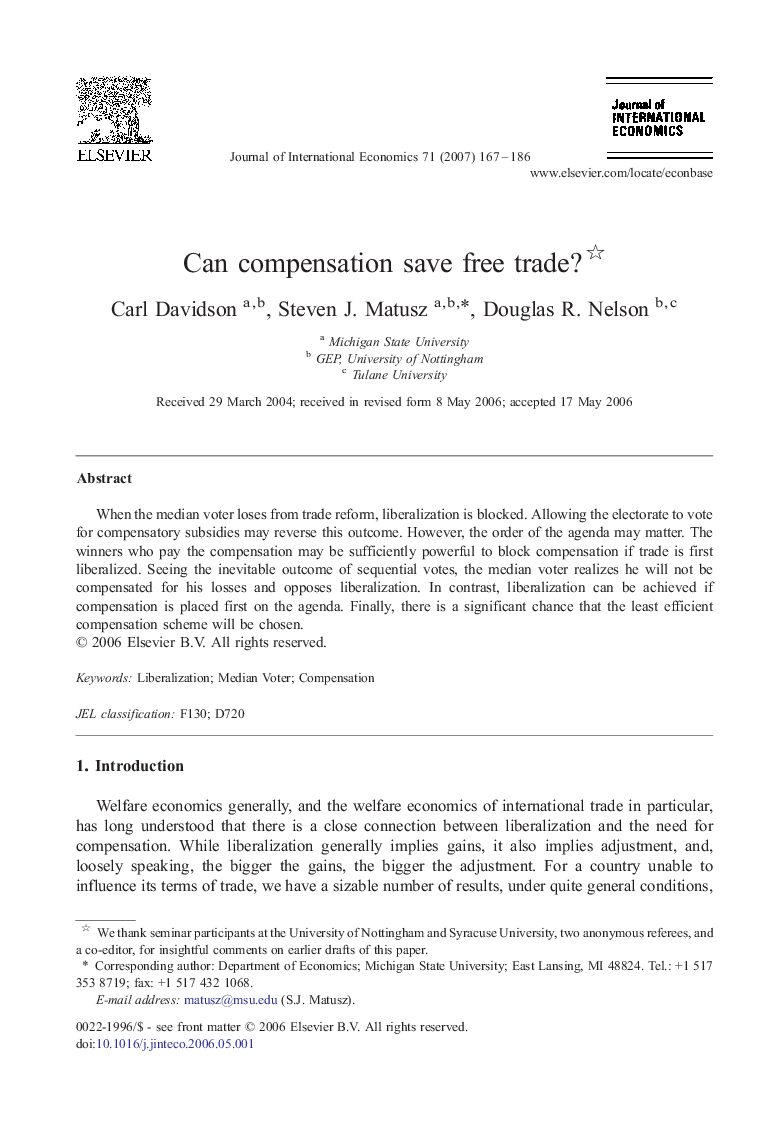| Article ID | Journal | Published Year | Pages | File Type |
|---|---|---|---|---|
| 962829 | Journal of International Economics | 2007 | 20 Pages |
Abstract
When the median voter loses from trade reform, liberalization is blocked. Allowing the electorate to vote for compensatory subsidies may reverse this outcome. However, the order of the agenda may matter. The winners who pay the compensation may be sufficiently powerful to block compensation if trade is first liberalized. Seeing the inevitable outcome of sequential votes, the median voter realizes he will not be compensated for his losses and opposes liberalization. In contrast, liberalization can be achieved if compensation is placed first on the agenda. Finally, there is a significant chance that the least efficient compensation scheme will be chosen.
Related Topics
Social Sciences and Humanities
Economics, Econometrics and Finance
Economics and Econometrics
Authors
Carl Davidson, Steven J. Matusz, Douglas R. Nelson,
